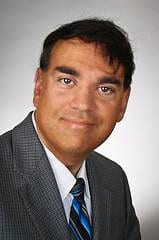 Shaum Bhagat – Department of Audiology
Shaum Bhagat – Department of Audiology
What is your role in your department/school?
My role is Professor and Department Chair for the Department of Audiology.
What would you identify as one of the most significant actions you have taken to advance the cause for diversity either in the classroom, your community, or your profession?
The most significant actions I have taken to advance the cause of diversity include participating in mentorship opportunities for a diverse group of young people interested in the professions of Audiology and Speech-Language Pathology. Through these opportunities, I have met young people and provided guidance concerning future careers in Audiology and Speech-Language Pathology. I have also been fortunate in having the opportunity to serve as a faculty mentor for students conducting Doctor of Audiology research projects. These opportunities have allowed me to listen and learn from young people interested in our professions, and have been instrumental in shaping my thinking concerning the importance of DEI in the higher education environment.
How have you integrated topics of DEI into hiring new faculty and/or admitting students?
In our department mission statement, we indicate that graduates of our program will be ethical, culturally sensitive, and committed to evidence-based practices. In order to help our students achieve these goals that are a necessity for professional practices in the 21st century, we must integrate DEI topics in recruiting both students and faculty. I have also been influenced by the CHHS mission statement concerning promoting health equity and social justice. I have contributed to a team-based approach of developing our program using DEI principles in order to provide a welcoming environment for diverse faculty members and students.
Tell us about how and why you became attentive to DEI topics.
As a child from a middle-class family with an immigrant heritage from South Asia, my experiences and those of my family members allowed me to realize that there are health inequities and social injustices that need to be addressed, and it is imperative that solutions are created for these social problems. I believe that there should be equal opportunities for all people to access health care.
Tell us one book, one article, one documentary, or one movie you’ve read or watched that you would like to suggest to others that helped shape your thinking about DEI work.
If I were to have only one choice, it would be “Letter from Birmingham Jail” by Dr. Martin Luther King, Jr. The passages from the letter that are particularly inspiring for me include “We are caught in an inescapable network of mutuality tied in a single garment of destiny. Whatever affects one directly, affects all indirectly.” These words are at the heart of my personal philosophy and remind me that there is much work to be done that requires direct action.